News



The 5th Shanghai-Busan Cooperation Forum co-hosted by the Institute for China & World Studies, Tongji University and the Center for Chinese Studies, Dongseo University (DSU) was successfully held on December 4, 2020. Organized by the Center for Chinese Studies, Dongseo University, this Forum brought together experts from China and South Korea for discussions online. More than 10 Chinese academic representatives from Tongji University, Fudan University, Shanghai Normal University and other institutions were invited to the Forum, including Professor Fang Ping, Deputy Secretary of the Party Committee and Secretary of the Committee for Discipline Inspection, Tongji University, Ning Fukui, former Chinese Ambassador to South Korea, and Sun Haichao, former Special Envoy of China to the Central African Republic. More than 10 representatives on Korean side from Dongseo University, Busan Economic Promotion Agency, Sungkyun Institute of China Studies, Korea National Diplomatic Academy, Dong-eui University, Pukyong National University, and Kyungsung University attended the Forum, including Professor Chang Je-kuk from DSU, Professor Shin Jung-seung, Director of the Center for Chinese Studies of DSU and former Ambassador of South Korea to China, and Professor Lee Hee-ok, Director of Sungkyun Institute of China Studies.
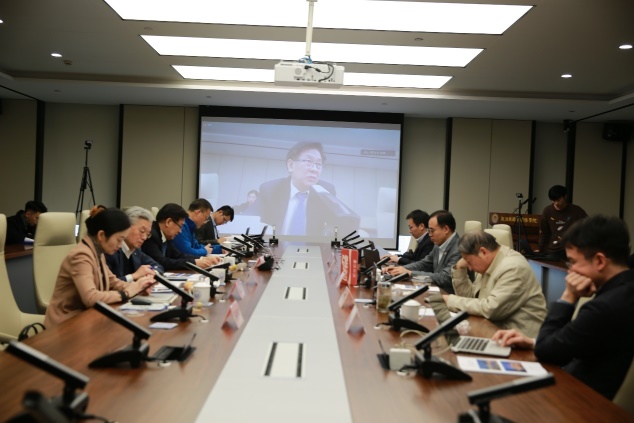
The opening ceremony was moderated by Shin Jung-seung, and addressed by DSU President Chang Je-kuk, Professor Fang Ping, and Guo Peng, Consul General of China in Busan successively.
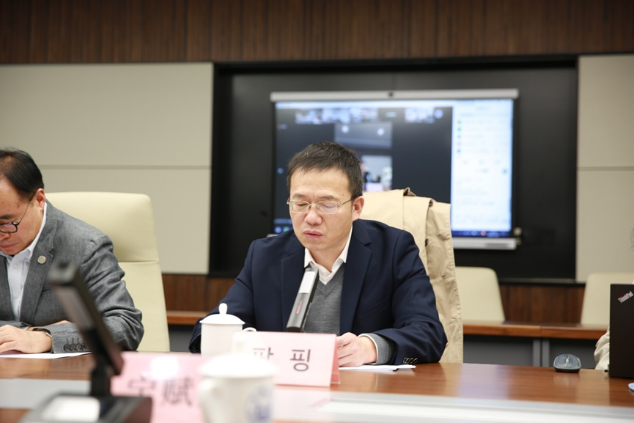
According to Professor Fang Ping, the Shanghai-Busan Cooperation Forum has yielded rich results since its founding in 2016. It is a strong testimony to the efforts of Tongji University to deepen its foreign exchange and cooperation with South Korea. In Fang’s opinion, as China and South Korea have been promoting cooperation in recent years, Chinese President Xi Jinping’s attendance at the celebrations of the 30th anniversary of Pudong’s development and opening up marks a new opportunity for an intensified and widened cooperation between Shanghai and Busan, and this Forum will inspire new insights and contribute new wisdom to the deeper friendship and cooperation between the two cities. Fang extended a warm welcome and appreciation to the experts and scholars present, and looked forward to a complete success of this forum.
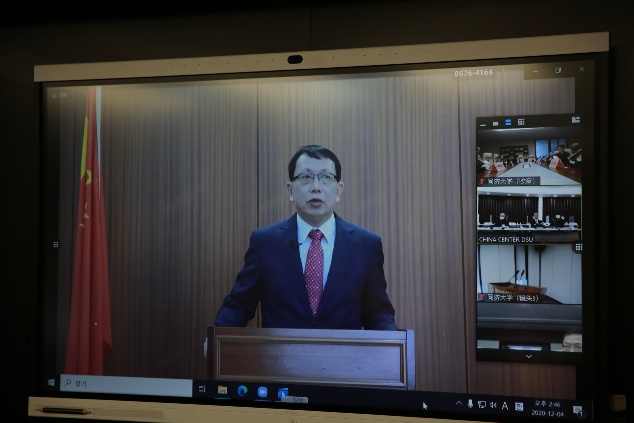
Guo Peng expressed warm congratulations on the continued convening of the Shanghai-Busan Cooperation Forum, and was excited to hear the insights from Chinese and Korean scholars on the China-ROK relations and the Shanghai-Busan cooperation in the post-Covid era
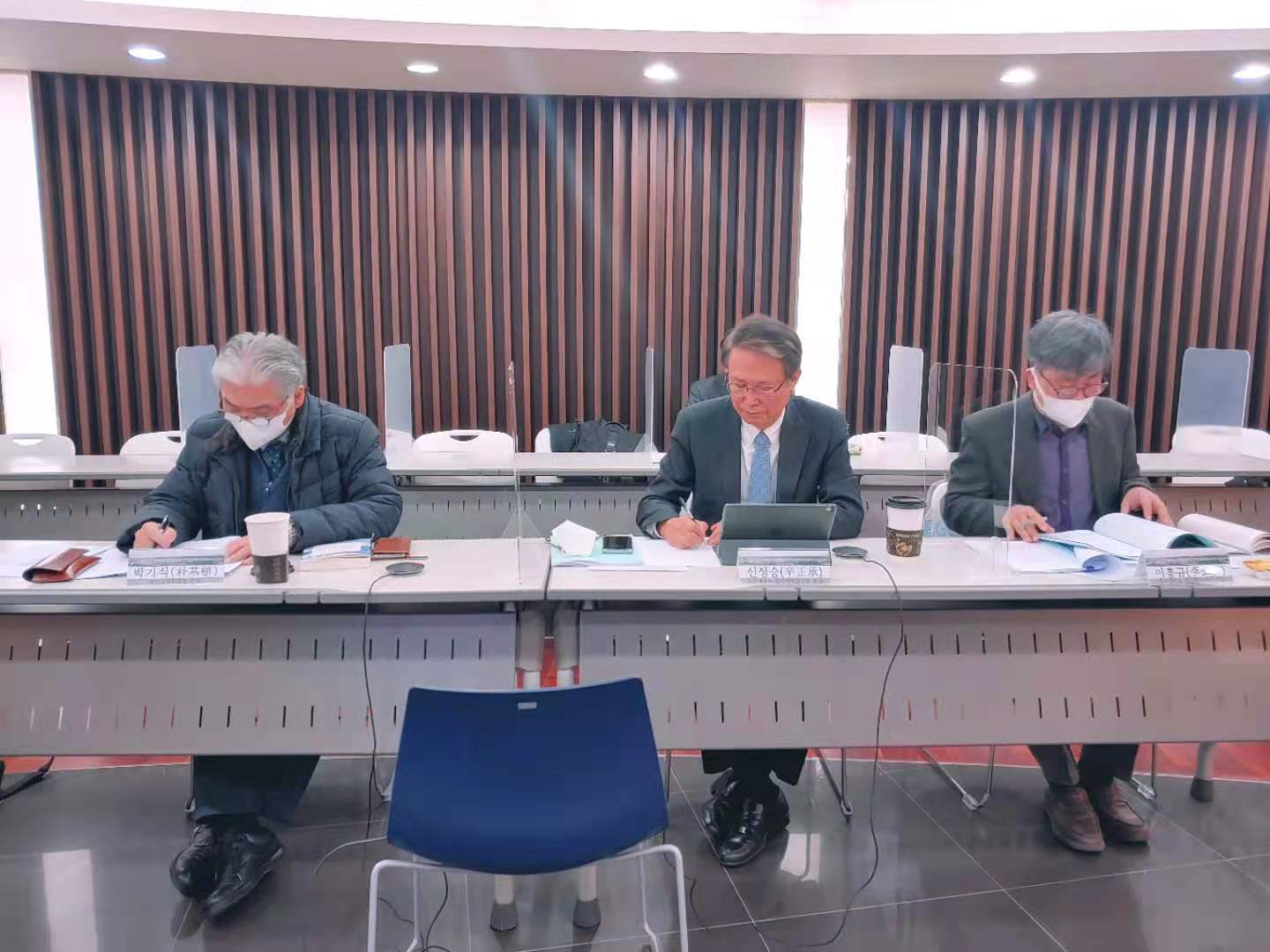
In the following panel discussion, Shin Jung-seung moderated the speech and discussion on the first theme of the forum, East Asia Situation after Biden’s Election
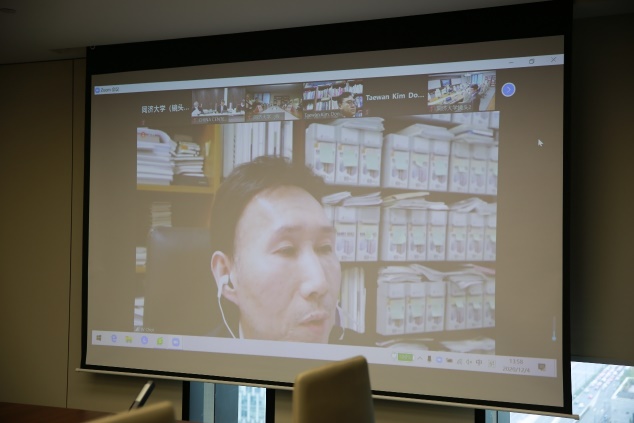
Professor Choi Woo-seon from Korea National Diplomatic Academy, delivered a speech themed “Outlook on the Biden Administrations’ Policies towards China”. He said that judging from the recent US policies, the Biden administration will put China first. As cooperation with China is a way to maintain its hegemony, the Biden administration will strengthen its strategic dialogue with China while possibly adopting a competitive attitude and strategy. Although the Biden administration won’t play hardball, the overall China-US relations will remain on a downward trend.
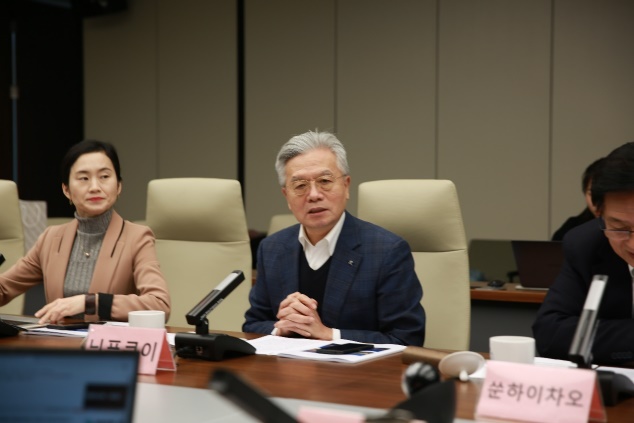
In his speech “Trends of the New US Administration’s Policies towards the Korean Peninsula after Biden’s Election”, Ning Fukui believed that Biden will inherit and learn from Trump’s policies towards the Korean Peninsula. According to Ning’s forecast, upon taking office, Biden will give priority to people’s livelihood issues; and in this case, the US-Korea relations may present three potential trends: first, the Biden administration may temporarily shelve the Korean Peninsula issue in the early days of taking office and maintain the status quo; second, it may launch a strategy in due time to win the trust of the Korean Peninsula; third, it may intensify its power policies and adopt the Libya model.
As stressed by Ning in this speech, we need to believe that South Korea will continue to improve its relations with North Korea regardless of changes in its administration, and that the key of the problem lies in whether China and the US can improve their relations, enhance mutual trust, and work constructively on the North Korean issue. Pooling all these factors together, Ning believed that the US-Korea relations are possible to make progress. China and South Korea should strengthen cooperation, insist on promoting cooperation between the Korean Peninsula and the US, and prevent the lack of communication and dialogue between the two sides.
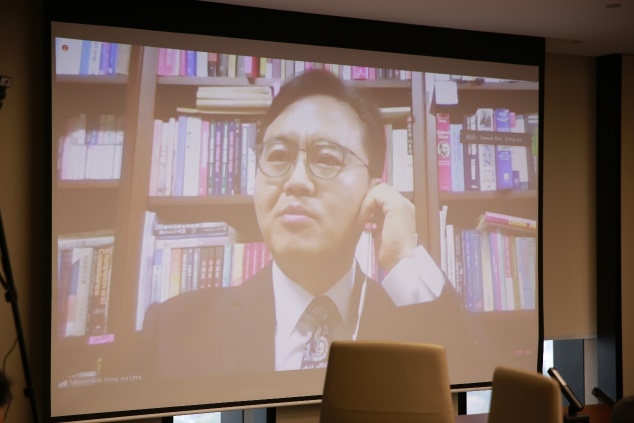
Professor Kim Tae-wanfrom Dong-eui University spoke on the topic of “East Asia in the Biden Era”. He believed that the Biden administration will focus on the restoration of the multilateral trade order, and thus it is very likely to rearrange itself in the field of military diplomacy; so the Biden administration may strengthen its alliances and encircle China in East Asia. According to his analysis, the Biden administration will not deviate much from its conventional strategy of blocking and containing China, but compared with Trump, Biden will be less unilateral and more cooperative. The US policies towards Asia during Biden’s presidency will become one of its means to contain and block China.
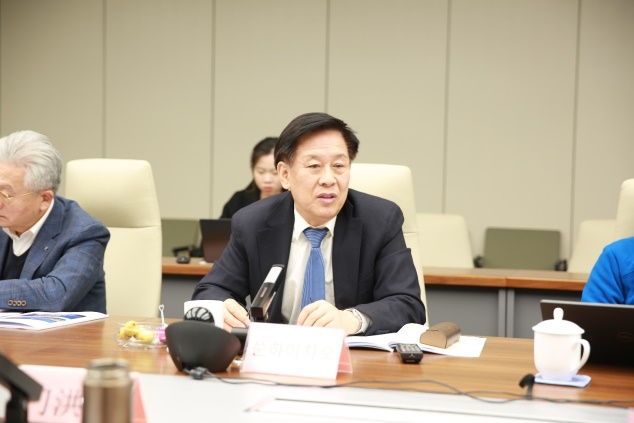
In his speech “International Situation after Biden Hosts the White House”, Sun Haichao analyzed and predicted the policy trend of the Biden administration from three aspects. First, after Biden came into power, his top priority is to address the evil consequences of Trump allowing the pandemic to spread, and the social and racial divisions caused by the idea of “white supremacy”, while other issues will take a back seat temporarily. Second, Biden clearly stated that he would take the US back to world leadership and return the world to the US-led multilateralism. But things won’t be that easy, as the Biden administration will have to start from scratch to rejoin the Paris Climate Agreement and the World Health Organization. Just imagine how long it will take. Third, East Asia will become a key region shaping the global landscape of peace and stability, and a major driving force for world economic growth. Against this background, the China-ROK partnership has a promising future.
Then Chinese and South Korean scholars discussed issues such as easing China-US-ROK relations, the North Korea nuclear issue, and China-Japan-ROK cooperation. As stressed by Professor Men Honghua, Dean of the School of Political Science & International Relations and President of the Institute for China & World Studies, Tongji University, the Biden administration will have a profound impact on the policy trend of East Asia. In face of the greatest change in a century, we should focus on not only the immediate adjustment but also the long-term planning. We expect the US to return to normal, but it may be a grim struggle for the US itself. China is ready to put more emphasis on the necessity of regional cooperation to promote a reasonable development of China-US relations in a relatively stable state. Under this mechanism, the China-Japan-ROK FTA can achieve further cooperation, which can in turn drive the development of RCEP.
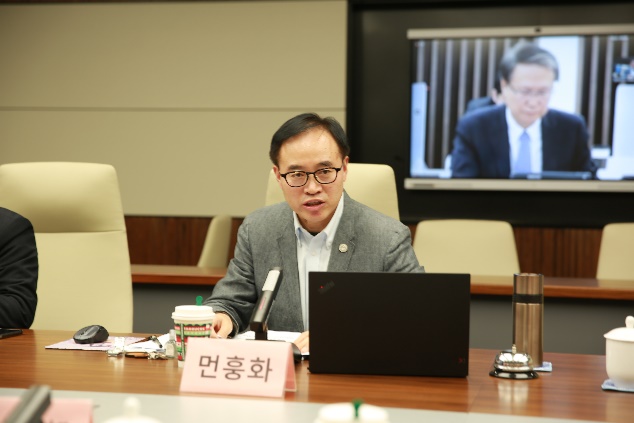
Dean Men moderated the session of the second theme, Shanghai-Busan Cooperation in the Post-Covid Era.
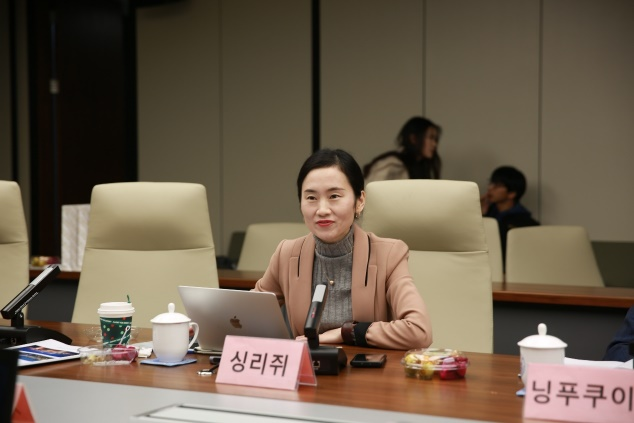
In her speech “Opportunities and Challenges of China-ROK Cultural and Educational Exchanges in a Post-Covid Era”, Professor Xing Liju from Fudan University reviewed the sound foundation of China-ROK cultural and educational exchanges and gave an outlook on the exchanges in the post-Covid era.
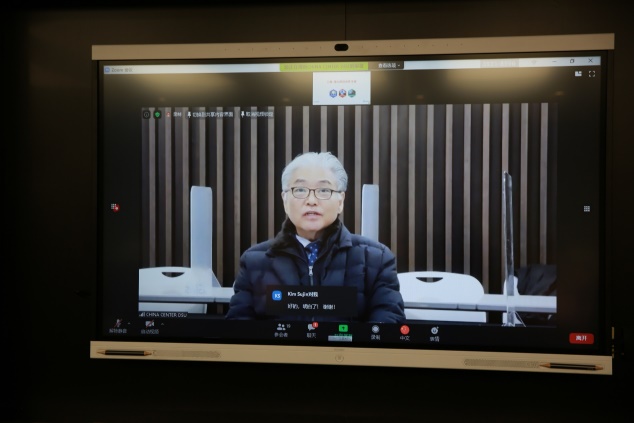
Professor Park Ki-Sik, President of Busan Economic Promotion Agency, delivered a speech themed “Pusan-Shanghai Economic Cooperation Plan”. Park believed that Shanghai-Busan cooperation should focus on sharing successful cases of the fourth industry and IT technology commercialization, and promoting technology exchange among IT enterprises.
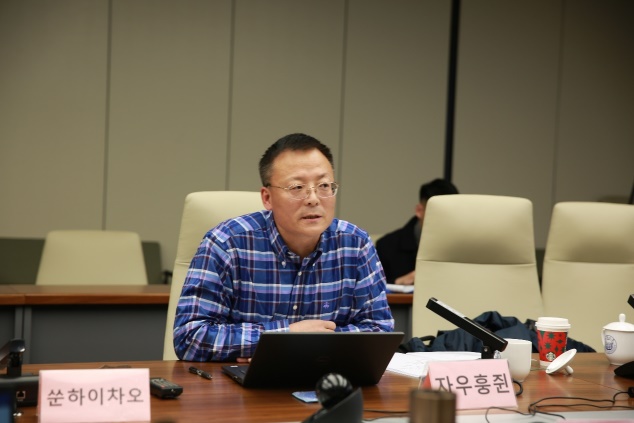
Professor Zhao Hongjun, Deputy Dean of the School of Finance and Business, Shanghai Normal University, analyzed the cooperation between Busan and Shanghai from a cultural perspective. In his view, the Covid-19 pandemic has provided a good opportunity for us to understand and reflect on the relationship between China and South Korea. In the future, the two neighbors may expand their economic, cultural and people-to-people ties at both governmental and non-governmental levels to promote the overall development of China-ROK relations.
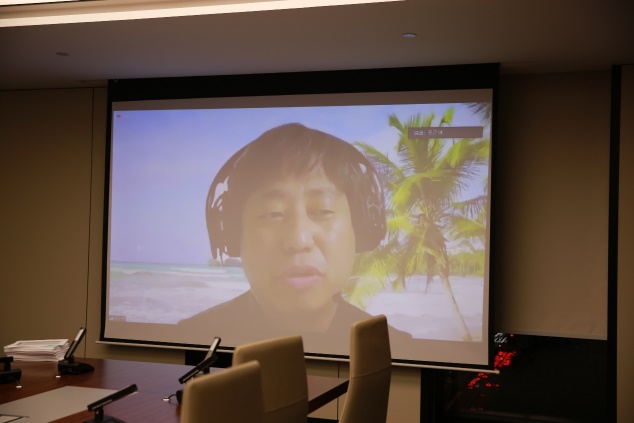
Professor Ye Dong-gen from Pukyong National University made a speech on the theme of “Epidemic Prevention and Control and Cross-border Cooperation between Cities in a Post-Covid Era”. He reviewed the basic situations and response measures of Shanghai and Busan facing the Covid-29 pandemic, indicating that Covid-19 is a catalyst for the friendly and cooperative relations between the two cities. China and South Korea may deepen regional cooperation, promote a multi-field cooperation through the cooperation in the health sector, and build an effective online exchange platform between countries and cities in the future.
Then Chinese and Korean scholars had a heated free discussion on the cultural and educational exchanges, the changes in China-ROK relations after the Covid-19 outbreak, and the Busan-Shanghai Joint Initiative, etc.
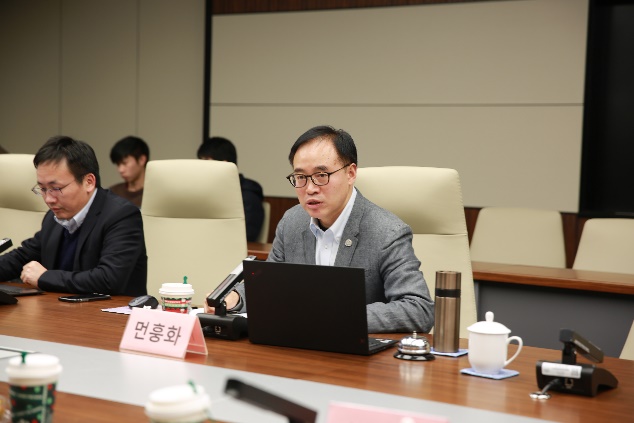
The Forum concluded with remarks by Shin Jung-seung and Dean Men at the closing ceremony. The two sides reviewed the development history of the Forum, underlined its significance in promoting bilateral academic exchanges, and expected to build it into an important platform for exchanges. Both sides were looking forward to the next 6th forum.